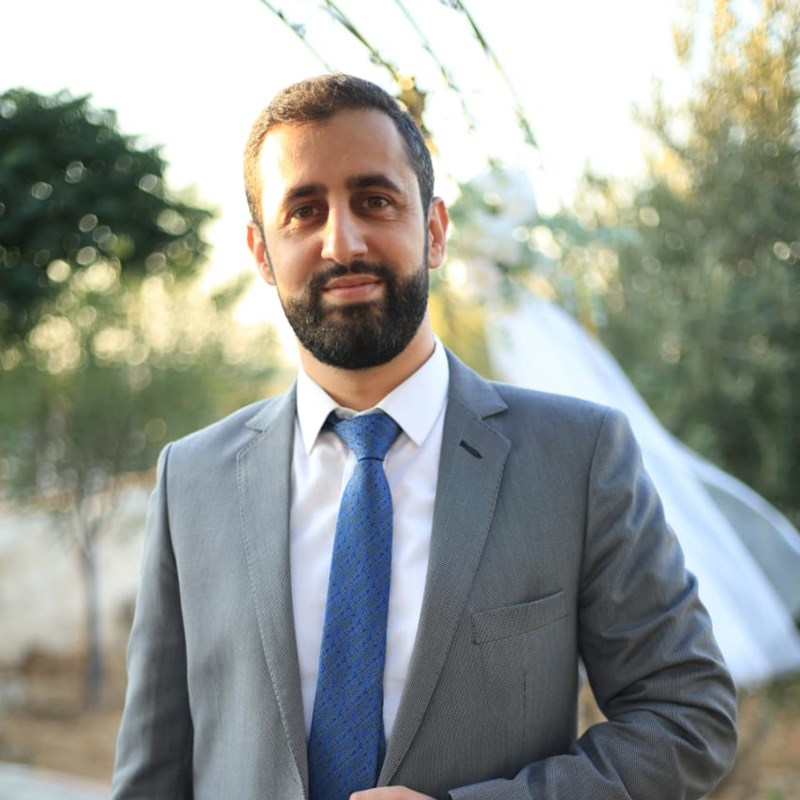Look Inside IrisGuard with Haitham Momani

We’ve been leading the way in innovation for the past 20 years with very clear goals. Our solutions are there to deliver value, in its most literal sense, to be inclusive and to make a positive impact on peoples' lives.
The people who are on the edge of implementing what can be a complex solution in complex environments, are our Operations team and to learn more, we’ve spoken to Haitham Momani.
Haitham, how long have you now been with IrisGuard?
I joined IrisGuard 11 years ago after completing my degree in Communications Engineering. I started in technical support working on our border security projects as well as our deployment with Cairo Amman Bank. Through pursuing a number of different roles, I gained the experience required to fulfill my current position of Infrastructure & Deployment Manager.
I accumulated hands-on experience at different technical levels, from physically installing our iris scanners during my early days, to planning and managing full-scale projects within the MENA region. In addition to that, I built the infrastructure to host iris server engines with multiple disaster recovery sites, incorporating the highest industry standards in terms of security and performance. This experience empowers me to perform what the job requires, to implement and support our operations in the field.
I don’t do this on my own, I am a part of a brilliant team of people who strive to get the work done to perfection. I remember when we undertook the Civil Status and Passports Project, working with the CSPD team for fairly long periods, even interrupting a fast during Ramadan until early hours of the morning. We needed to provision for the infrastructure involving the network and servers, electricity, installation of devices and connecting 160 stations. This system now utilizes over 10m irises of Jordanians over 18 years of age.
Staying with the CSPD project, what were the main challenges you came across?
The main challenge was the locations because they do not have a unified design. It was also one of our highest-profile national projects. Every TV station, every news outlet as well as Government officials, including His Majesty the King Abdullah II, came to their HQ. The feedback from the operators was paramount for us, particularly on the system’s ease of use, its speed during enrolment and its ability to run through tens of thousands of cross matches a day.
Our project with Cairo Amman Bank, what did people think after it was installed?
This was a steep learning curve for us as it was our first integration with a banking system. But working with ATM machines and their components was a fantastic experience because we saw that people loved using it. If they forgot their card or a password, they were able to utilise their iris instead. To this day, it is the world’s first and the only deployment of this nature, used daily by hundreds of thousands of beneficiaries collecting their entitlements provided by generous donors.
Since then, we’ve deployed with a variety of ATMs, which during 2018 and 2019 enabled me to lead installations at LibanPost and Cash United for WFP card verification system, Egypt Post for UNHCR cash delivery and Jordan Post for WFP card verification system.
I worked alongside Nasser Al-Taweel and Mustafa Jaber together with Egypt Post’s and ITSC technical teams, provisioning all their iris enabled branches and co-ordinating the live roll-out with their stakeholders. Nasser stayed on site for two weeks to ensure a seamless launch and post-launch technical support.
We often split up the team to cover larger geographical locations for a co-ordinated deployment and that’s the approach we took with the deployment at NAF Jordan for example, where the north and south locations were integrated in parallel.
Focusing on our deployment with LibanPost, what did the installation involve?
I stayed in Lebanon for two months and during that period we did the integration and the installation of 180 stations in 160 different location at LibanPost and Cash United. Myself and my colleague Osama Zayed supported their operators through face-to-face training sessions in different locations to get the system up and running, and we have a local technician in place with the SW/HW tools for immediate assistance if required.
Each project has a unique set of needs and parameters but we believe that it’s crucial to have a constant support on the ground post launch. We compliment this with regular visits to make sure the system is maintained effectively.
We go where we need to be and we stay until we see the solution up and running. It has to be reliable, fast and very easy to use as it enables the provision of assistance to millions who rely on it.
Related Content
Trusted by














